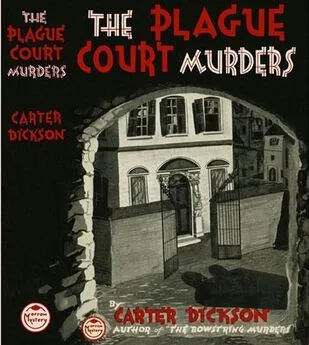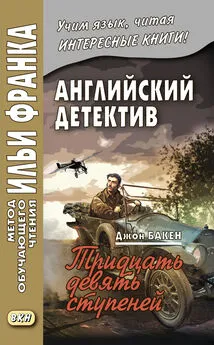John Blaine - The Boy Scouts In Russia
- Название:The Boy Scouts In Russia
- Автор:
- Жанр:
- Издательство:неизвестно
- Год:неизвестен
- ISBN:нет данных
- Рейтинг:
- Избранное:Добавить в избранное
-
Отзывы:
-
Ваша оценка:
John Blaine - The Boy Scouts In Russia краткое содержание
The Boy Scouts In Russia - читать онлайн бесплатно полную версию (весь текст целиком)
Интервал:
Закладка:
THE TUNNEL
Fred found the secret passage much less confusing than he had thought it likely to be. As soon as he had stepped in, the panels slid back into place, and the passage was immediately dark. But Boris had had time to find an electric torch for him, and had told him where to find another-or two or three, for that matter-when that was exhausted.
"We've always kept them there in case of emergencies," he had explained.
So Fred had felt assured of a supply of light, which was the one absolutely necessary thing if, as was entirely possible, the German soldiers stayed in the house for any time. One other thing, of course, was necessary; food and drink. And that, too, he knew where to find. Boris had told him of a store of compressed foods, and of fresh water, piped into this amazing passageway from the outer entrance, far beyond the limits of the gardens and grounds of the house.
The first thing Fred did was to switch on the light of his torch and inspect the warren in which he had found sanctuary. It was not at all the musty, bad smelling place he had expected it to be. The walls had been plastered and stained a dull grey, which did not reflect the light from his torch appreciably. The arrows appeared, as Boris had said they did, at frequent intervals.
"Not much of a secret." That was Fred's first thought. "But it needn't be. The men who worked in here are the ones the family can trust absolutely, I suppose."
It gave Fred a certain thrill to feel himself in touch with such things, to know that he belonged to such a family as the Suvaroffs, capable of inspiring such devotion in its retainers-which, though Boris regarded it as a matter of course, seemed a great thing to Fred, with his American upbringing.
"What a piece of luck!" he reflected. "Imagine my stumbling on such a splendid fellow as Boris! If it hadn't been for all this trouble, I might never have known I had a cousin! And he's the sort of cousin I call worth having! He amounts to something-and I don't believe he's as old as I am. Well, I've got to show him that an American scout can keep up his end! I'll try to play the game with him."
It made up for all the trouble he had had since he had first seen his uncle. He was more puzzled than ever, after what Boris had told him, to account for the behavior of Mikail Suvaroff.
"I'll bet there's some explanation," he said to himself. "I certainly hope so! Seeing Boris makes me inclined to like these Russian relatives a whole lot, and I'd like to think that Uncle Mikail could square himself somehow. He's got a whole lot to make up for, of course."
Though he did feel that very strongly, he was able now to frame a thought that had come to him more than once after he had become certain that it was Prince Suvaroff who had caused his arrest. And that was that Suvaroff had seemed far too big and important a man to do a small, petty thing.
"He's got a wrong idea of me, some way," Fred decided. "He has heard something, or made up his mind to something that isn't so. Well, I hope I get back to Russia and stay out of jail long enough to find out what was wrong. Perhaps this war will make a difference, especially if I'm lucky enough to be able do something for 'Holy Russia'."
Fred moved along quietly while he was thinking of the extraordinary sequence of events that had brought him to where he now was, flashing his light on the arrows, and looking for the double mark that would show him he had reached the spot of which Boris had told him. But when he got there he had no need of any sign, for he could hear voices distinctly on the other side of a very thin wall. Boris was speaking.
"I'm so sorry, Herr Hauptmann," Boris was saying, in faultless German. "I did see some of the peasants chivying a fellow down below. And I did go out, of course, in my car, to see if I could help him. I got him away from them. But he didn't come all the way back. He wanted to go on, and it's not just the time I should choose for entertaining guests. So I didn't urge him to stay."
"I'm sorry to seem to doubt your word. In fact, Prince, I don't," said a rumbling voice, that of the German captain Boris had been addressing, as Fred could guess. "But was this person you rescued so-chivalrously-an Englishman?"
"I really don't know, Herr Hauptmann. He might have been. Or an American. One or the other, I should think."
"Clever Boris!" thought Fred. "He'll tell him some truth and some fiction! He has got to deceive him, of course-that's war."
"I have reason, Prince, to think that he was an English spy," the captain went on. "You will allow my men to make a search? And, by the way, I shall be sorry to take away your servants, but my orders are to arrest and send to detention camps every man of military age I find here."
"I understand, captain. I am entirely in your hands, of course. I should like to know if it will be possible for me to return soon to Russia?"
"You must go to higher officers than myself, Prince," said the captain. "If it rested with me-! But, of course, it does not. If you see your father soon, however, will you give him my compliments? And tell him from me that I should esteem it an honor if we should meet in the field?"
"Gladly, captain. It is a pity that such good friends and neighbors as we have all been must be enemies, is it not? But it was not our doing."
Fred frowned a little.
"That sounds rather bad," he said to himself. "If this captain has lived near here, he must know a good deal about the place. And, by George, if they make a search they will find the wireless machinery that Ivan brought in with him! It may be a mighty bad thing for this house and for Russia that Boris saw me and brought me in, though it was certainly lucky for me!"
But even then Fred did not guess the extent of the trouble he had really caused. He listened intently, but for a time there was silence beyond the wall. Then he heard a murmur of voices, and guessed that a report of the search for him was being made. And then the captain's voice boomed out.
"Prince," he said, "I must ask you to come with me and to consider yourself under arrest. It is very painful but those are my orders. Colonel Goldapp wishes to see you. I think it is only a form."
"What? You will take me away?" Fred caught the dismay in his cousin's tone, and winced slightly. But then he understood that it was not fear for himself that moved Boris, but anxiety lest the important plans of which he was such an essential part should be spoiled. "But my father-he thinks that I am safe here until he can make arrangements for me to return to Russia."
"I am sorry." The German's tone, gruff though it was, was by no means unkindly. "Orders, however-I have no choice. Doubtless you will be allowed to return as soon as the colonel has seen you."
"Well, there is no use in arguing, of course," said Boris. He raised his voice, and Fred understood that what followed was meant especially for his ears. "Where will you take me, Herr Hauptmann?"
"Colonel Goldapp's quarters are at present in the parsonage near the village. You will be examined there, Prince. We shall be there to-night, at least, perhaps longer."
"I see. I will be ready in a few moments. Will you excuse me if I write some instructions for Vladimir, who will be in charge after I go? You may, of course, read what I write."
"Assuredly."
Then there was silence. The room outside was so quiet that Fred had a chance to realize how perfectly the place in which he was hidden served its purpose. He could hear the heavy breathing of someone near the wall. Then a chair scraped along the floor, and in a moment he heard the scratching of a pen. And then there came a new sound, a tapping, as with two fingers. That was Boris, and quite suddenly Fred understood. Boris was tapping out a message to him in telegraphic code.
"You must take charge here," Boris tapped with his fingers. "I will tell Vladimir to get you as soon as it is safe. The parsonage where I will be taken is very near the outlet of the secret passage. If Ivan returns, tell him I am there, and that I will sing or whistle the song of the Volga boatmen from time to time, so that he may know the window of my room, if there is no guard in the room with me. Do not answer, for they might hear."
"Good boy! He certainly has nerve!" said Fred to himself, admiringly. "He doesn't know what's going to happen to him next, but he is certainly doing all he can to make things come right."
Then there was a new confusion of noise outside. Fred heard Boris call Vladimir and speak to the old servant in Russian. Then the German officer gave Vladimir his instructions.
"This place will be left alone for the present," he said. "Prince Alexander Suvaroff has been a good friend and neighbor, and, though he is an enemy, we desire to respect his property as long as possible. But neither you nor any who are left in the house with you must go out-this for your own safety-except to get food and then go yourself."
Fred heard a general movement then, and guessed that they were going out. Silence followed, and, after listening for a time, he decided upon an exploration of the secret passage. A vague plan was taking form in his mind already. It seemed to him that, as he was at liberty, he should do anything that was in his power to free Boris. Until he knew more of the lay of the land, he could not even make a real plan, but it was possible, he thought, that something that was in his mind might easily prove to be feasible.
It was easy, with his torch and the guiding arrows, to follow the devious, winding course of the passage. He surmised that its ascents and descents, which seemed arbitrary and unreasonable as he pursued them, were due to other entrances than the one he knew. It would be necessary, as he could understand, to have more than one means of getting in and out of such a passage. And when he found himself at last going in a straight path which sloped easily downward, he guessed that he was beyond the house, and that he had come to a part of the passage that led to the outer world.
Here there was a trace of dampness, but nothing like what might have been expected in what was really a tunnel. Fred had to admire the excellence of the construction work. The descent, as he knew from what he had seen outside, must really be very sharp. But it was managed here with turns and zigzags so that the grade was never very sharp.
Fred became suddenly conscious of a change in the air.
"I must be near the opening," he thought.
A couple of minutes proved that he was right. He now remembered that Boris had not had time to tell him how the door or gate was operated. But he decided not to go back at once, but to try to discover the secret for himself. It had occurred to him that it was more than probable that a sentry or two might be left in the house, and he had no mind to stay in the passageway, helpless and useless, if Vladimir found it impossible to let him out at once.
At the end of the passage he found a solid, seamless door. He decided at once it must work on an axis of some sort and that it must be set in motion by pressing a spring. And so, steadily and systematically, he searched the whole door, until he struck the right spot at last. As the door moved, he marked the spot with a tiny pencil mark. It swung open-and he looked into the eyes of a startled German soldier, his mouth wide open! CHAPTER VII
A DARING RUSE
It would be hard to say which was more surprised-Fred or the soldier. For just a moment they stood, both of them, perfectly still, staring at one another with fallen jaws. And then Fred acted by pure instinct, and without the semblance of a plan in his mind. He had played football in school and on the team of his scout troop in America. And now he dived for the astonished German's legs and brought him down with a flying tackle. The heavy gun flew out of the soldier's hands, and, fortunately for Fred, he fell so that his head struck the ground heavily. He was stunned and, for the moment at least, safe and out of commission.
Читать дальшеИнтервал:
Закладка:










